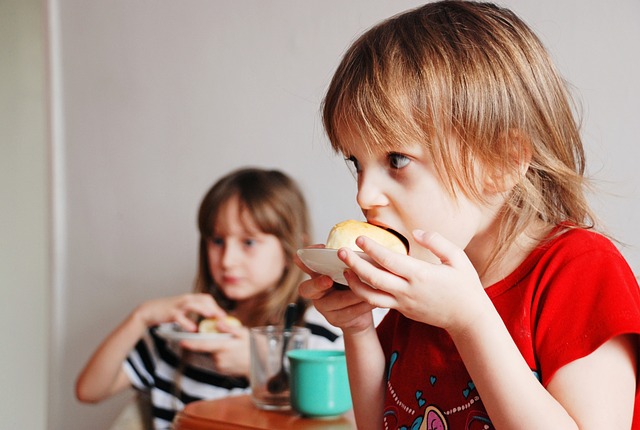The 10 best foods for babies
best foods for babies-The 10 best foods for babies. As a new parent, you’re likely bombarded with all sorts of information about what to feed your baby and when. And with good reason: the first three years of life are a critical time for establishing healthy eating

The best foods for babies are the ones that they can easily digest. Babies need to have a balanced diet in order to grow healthy and strong.
Baby Snacks That Will Keep Your Little One Happy
Babies need to have a balanced diet in order to grow healthy and strong. The best foods for babies are the ones that they can easily digest. This is because babies cannot chew food as well as adults do, so it is important that their food is easy for them to swallow.
According to the American Academy of Pediatrics, it’s important to give your baby a variety of healthy foods. There are plenty of healthy, baby-friendly foods out there, but these 10 pack recommendations by doctors and dietitians are different. From vitamin-rich fruits and vegetables to protein-rich meats and beans, these superfoods are packed with essential nutrients, reasonably priced, easy to prepare, and delicious.
Best first foods for baby
In the first year of a baby’s life, they are going through rapid growth and development. They need a lot of nutrients to help them grow. The first year is also when they are most likely to develop food allergies, so it is important that parents introduce foods in a controlled manner to reduce the risk of developing them.
- Milk
Milk is one of the first nutrition we give our offspring, especially human beings. It contains high concentration of protein, fat, lactose, vitamins, and minerals like iron, zinc, calcium, copper, phosphorous, sodium, and potassium. A cup of milk provides about 9 grams of protein, 50 mg of calcium, 0.8 mg of vitamin D, 1 g of carbohydrate, and 0.6 g of fat.
- Yogurt
Yogurt is a fermented milk product that is rich in probiotics (good bacteria) and is considered safe for infants. It’s a great way to introduce your baby to solid food as well as giving him/her some good bacteria. Add yogurt to cereal, oatmeal, or mashed banana to boost its nutritional value.
- Cheese
Cheese is a creamy food containing calcium and potassium. It’s perfect for babies who love dairy products. You can make cheese balls using cottage cheese, cream cheese, and breadcrumbs. Use them as snacks between meals for your baby.
- Fruit Juice
Fruit juice is a nutritious drink that may not have fiber but provides many other health-promoting components including vitamin C, antioxidants, and minerals. It’s recommended for the infants under 2 years old. Try drinking fruit juice mixed with water or breastmilk.
- Chicken
Chicken is a popular meat among parents and their children alike. It’s low in fat and cholesterol while providing quality protein. Make sure to cook chicken without oil or butter since these ingredients increase the risk of allergies.
- Salmon
Salmon is a fish that is rich in omega-3 fatty acids. These types of fats help brain development and reduce inflammation. Omega-3s are especially important for pregnant women and mothers.
- Oats
Oats are one of the oldest grains known to man and they’re a great source of dietary fiber. Fiber helps control blood sugar, controls bowel movements, and keeps us feeling full. Oats are a natural source of B vitamins, Vitamin E, magnesium, and iron.
- Green Beans
Green beans are loaded with antioxidants, vitamins, and minerals. One cup of cooked green beans provides almost two grams of fiber, three times the recommended daily intake. Green beans also offer folate, vitamin K, manganese, potassium, and iron.
- Oatmeal
Oatmeal is a great breakfast option for babies. It includes several nutrients such as iron, fiber, manganese, folate (B9), magnesium, potassium, riboflavin, thiamine, niacin, pantothenic acid, zinc, biotin, vitamin C, dietary fiber, and phytosterols – which can lower cholesterol levels.
- Eggs
Eggs are packed with choline, a B vitamin necessary for brain function. Choline supports the development of the nervous system, vision, speech, learning, and memory.
Brown Rice for baby
Brown rice is the perfect alternative for a low-carbohydrate diet. Brown rice is rich in protein, dietary fiber, vitamin E, niacin, thiamin, riboflavin, and pantothenic acid. Brown rice is low in fat, sodium, and cholesterol.
Bananas for baby
Bananas are packed with vitamin B6, vitamin C, potassium, and copper. Bananas help in building strong bones and teeth and contain other minerals like phosphorous, silicon, sulfur, and magnesium. Also, bananas provide a great source of fiber.
Cabbage for baby
Cabbage is very nutritious for baby and provides them with many vitamins, minerals, and antioxidants. Cabbage contains vitamin A, vitamin C, vitamin K, vitamin B6, folate, pantothenic acid, iron, folic acid, calcium, beta-carotene, zinc, copper, manganese, and potassium. Since cabbage is high in fiber, its consumption should be spread out over 4-6 meals per day.













No comments:
Post a Comment